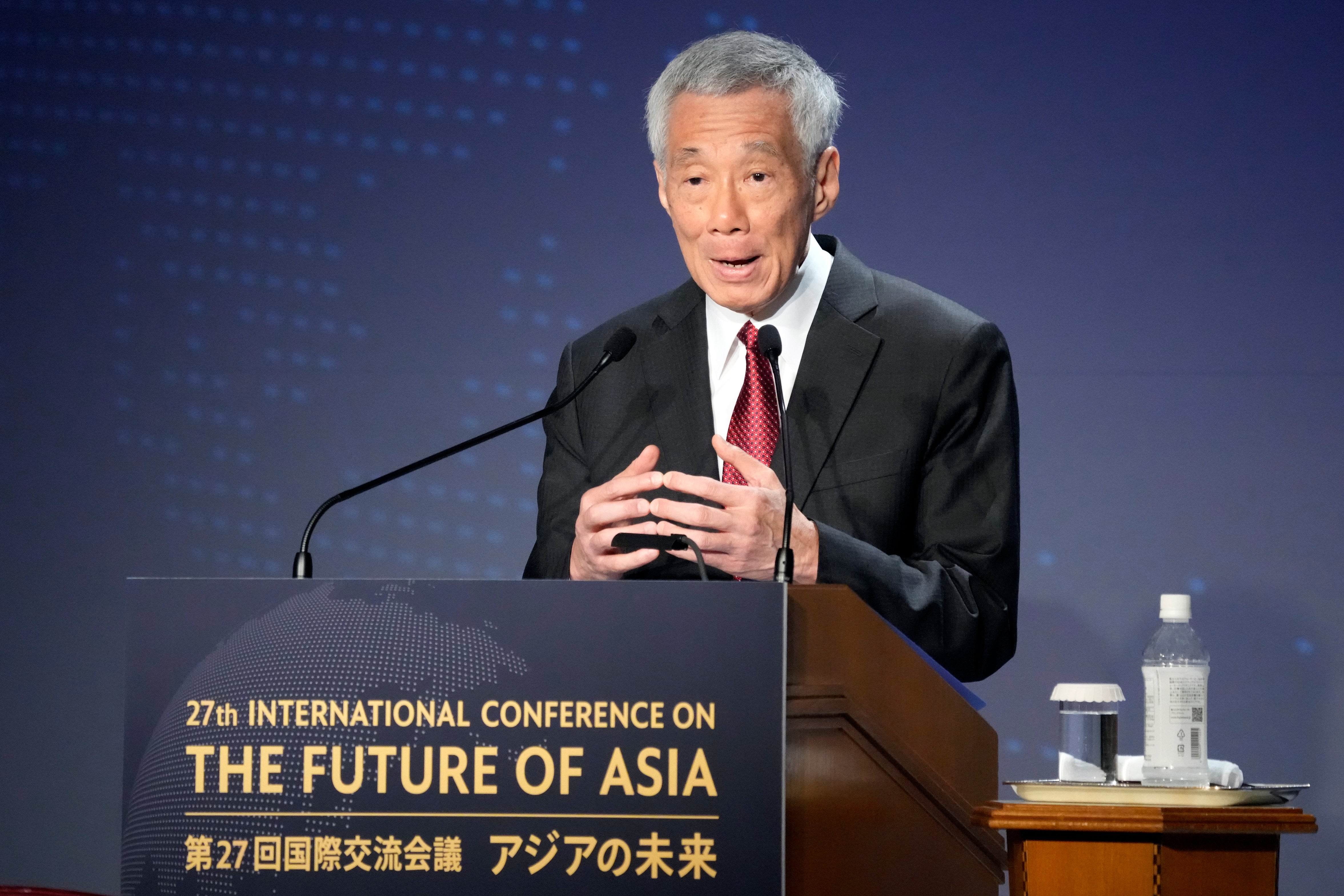Singapore to decriminalize gay sex, but will limit change
Singapore announced it will decriminalize sex between men by repealing a colonial-era law while protecting the city-state's definition of marriage

Your support helps us to tell the story
From reproductive rights to climate change to Big Tech, The Independent is on the ground when the story is developing. Whether it's investigating the financials of Elon Musk's pro-Trump PAC or producing our latest documentary, 'The A Word', which shines a light on the American women fighting for reproductive rights, we know how important it is to parse out the facts from the messaging.
At such a critical moment in US history, we need reporters on the ground. Your donation allows us to keep sending journalists to speak to both sides of the story.
The Independent is trusted by Americans across the entire political spectrum. And unlike many other quality news outlets, we choose not to lock Americans out of our reporting and analysis with paywalls. We believe quality journalism should be available to everyone, paid for by those who can afford it.
Your support makes all the difference.Singapore announced Sunday it will decriminalize sex between men by repealing a colonial-era law while protecting the city-state's traditional norms and its definition of marriage.
During his speech at the annual National Day Rally, Prime Minister Lee Hsien Loong said he believed it is the “right thing to do now” as most Singaporeans will now accept it.
“Private sexual behavior between consenting adults does not raise any law and order issue. There is no justification to prosecute people for it nor to make it a crime," Lee said. “This will bring the law into line with current social mores and I hope provide some relief to gay Singaporeans.”
Lee vowed the repeal will be limited and not shake Singapore’s traditional family and societal norms including how marriage is defined, what children are taught in schools, what is shown on television and general public conduct.
He said the government will amend the constitution to ensure that there can be no constitutional challenge to allow same-sex marriage.
“Even as we repeal Section 377A, we will uphold and safeguard the institution of marriage,” Lee said. “We have to amend the Constitution to protect it. And we will do so. This will help us repeal Section 377A in a controlled and careful way.”
Section 377A of the Penal Code was introduced under British colonial rule in the 1930s. British rule over the island ended in 1963 when Singapore became a state of Malaysia. It became independent two years later but retained the Penal Code, which made sex between men punishable by up to two years in jail.
Since 2007 when Parliament last debated whether to repeal Section 377A, its position was to keep the law but not enforce it.
But gay men say the law hangs over their heads and discriminates against them. Thousands of activists annually stage a rally in the city-state known as the “Pink Dot" in support of the LGBTQ community.
Lee said he hopes the government's move will help reconcile and accommodate both the concerns of conservative religious groups and the desires of gay Singaporeans to be respected and accepted.
“All groups should exercise restraint, because that is the only way we can move forward as a nation together," he said. “I hope the new balance will enable Singapore to remain a tolerant and inclusive society for many years to come."
One of Lee’s nephews, Li Huanwu, is gay. The son of Lee’s estranged younger brother Lee Hsien Yang married his partner in South Africa in 2019. Li Huanwu has attended Pink Dot events with his partner and parents.
Other former British colonies still retain similar laws that criminalize sex between men, including neighboring Malaysia where a former deputy premier was jailed twice for sodomy. He was sentenced in 2000 and again in 2014.
In 2018, India decriminalized gay sex after its Supreme Court in a historic ruling struck down Section 377 that punished gay sex by up to 10 years in prison. Some Asian countries have also moved to legalize gay marriage, with Taiwan as the first in 2019. Thailand also recently approved plans allowing same-sex unions.
Subscribe to Independent Premium to bookmark this article
Want to bookmark your favourite articles and stories to read or reference later? Start your Independent Premium subscription today.